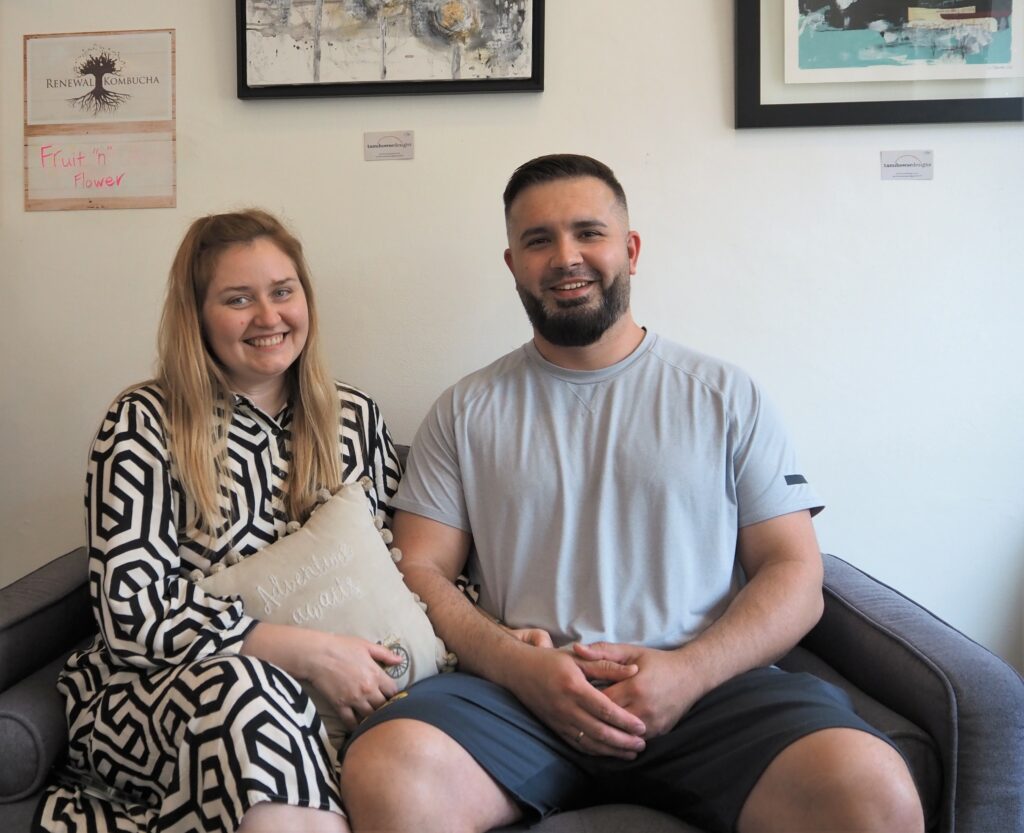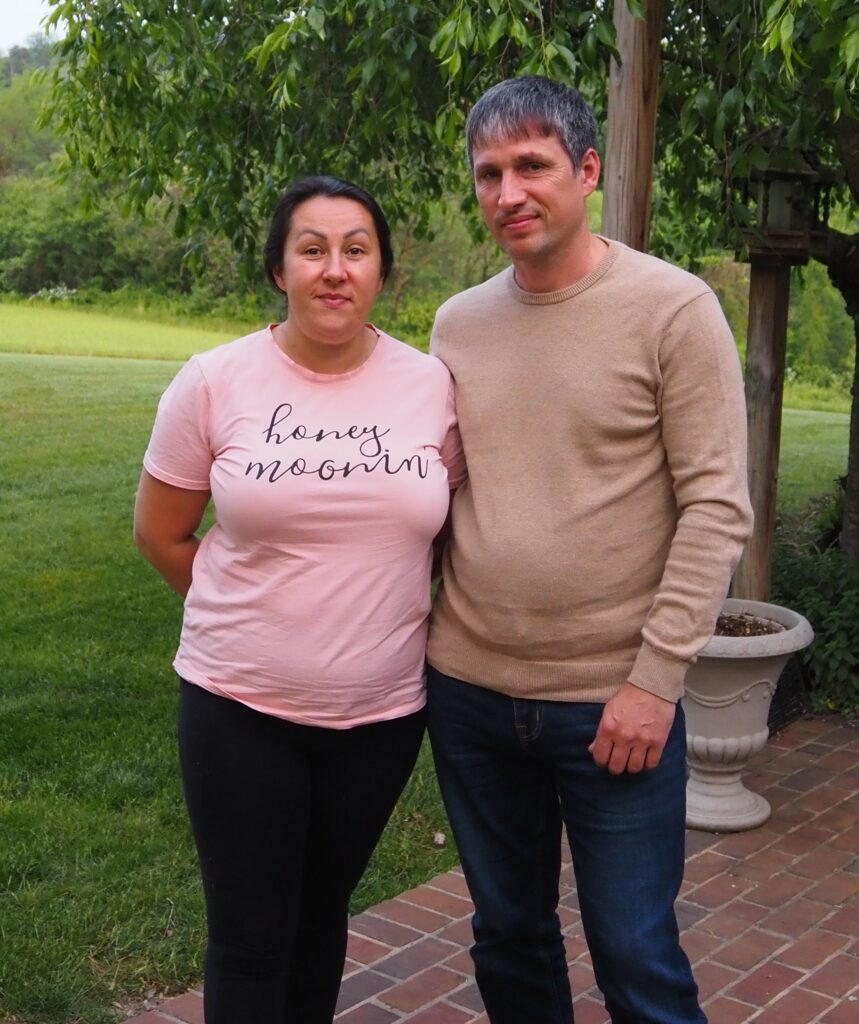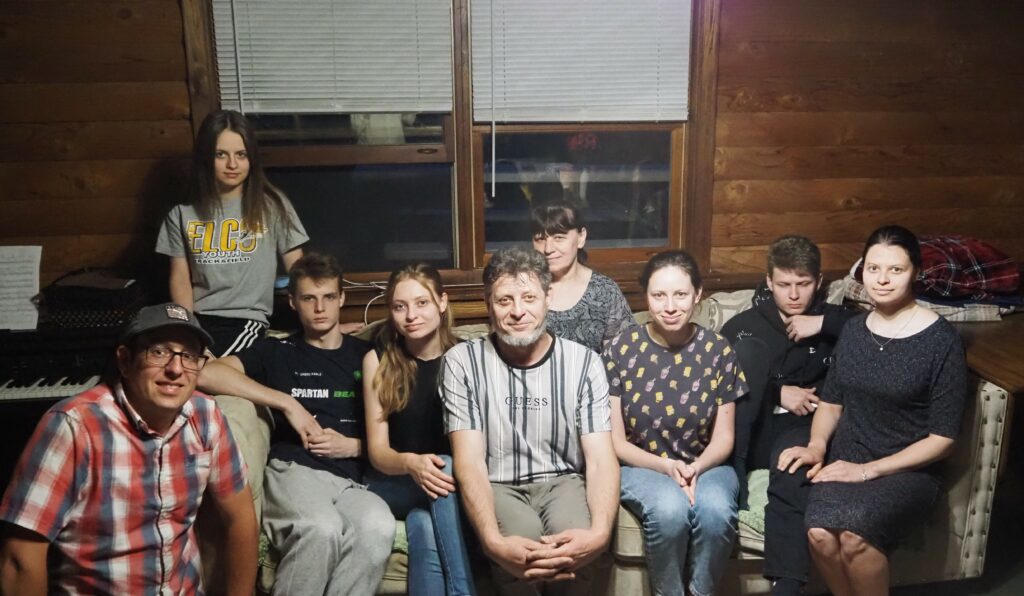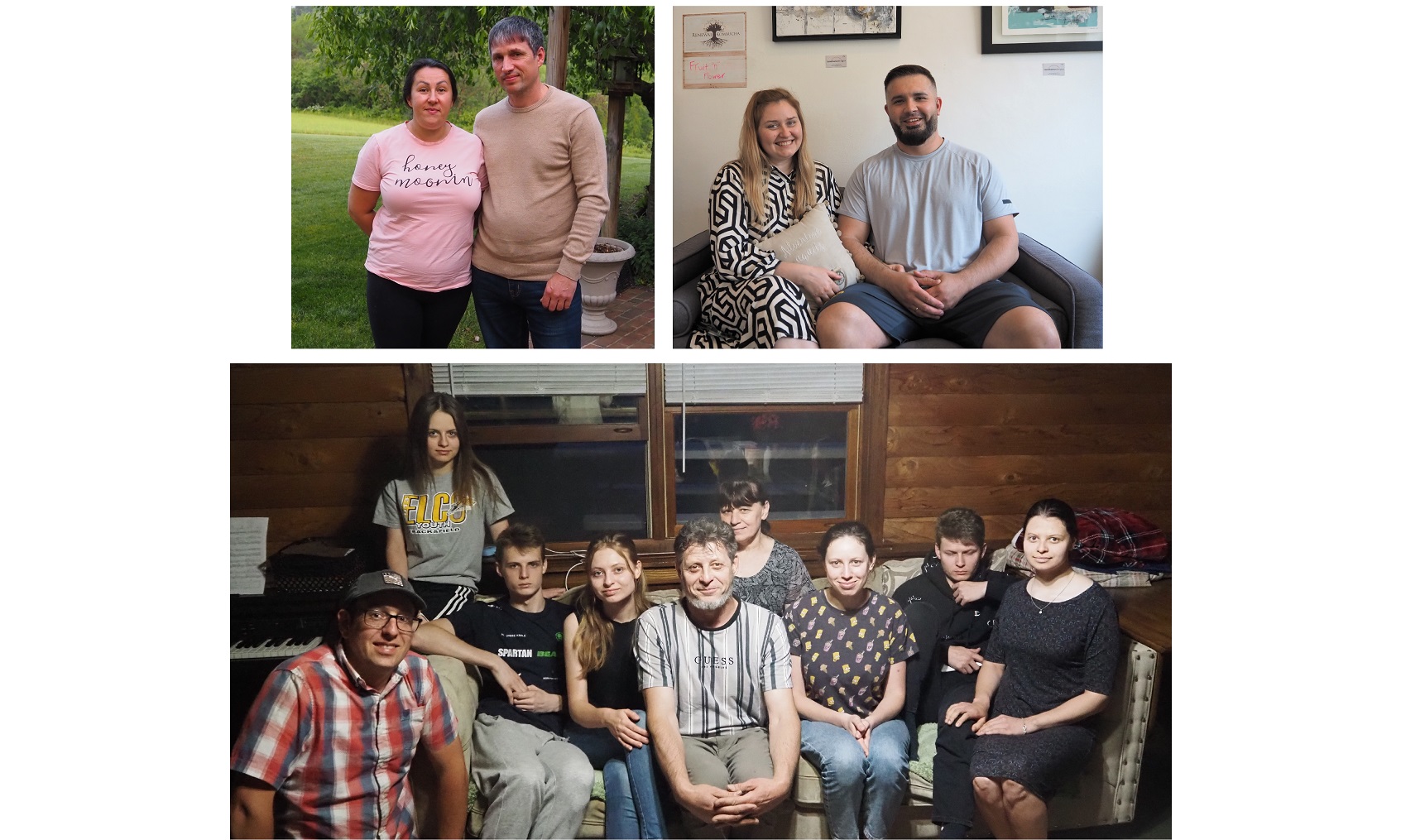
The rumors of a full-scale invasion seemed unbelievable, but just to be safe, Ruslan and Svetlana Rustemov decided to take a vacation.
They loaded the car with as much as it would carry. With their dog, Booch, they drove west from their home in Kharkiv, Ukraine.
They rented an apartment with a spectacular panorama of the Black Sea in Odessa, where they had honeymooned some years before. They planned to wait out what was sure to be a brief conflict.
On the first morning of what was to be 10 days in Odessa, they watched in terror as rockets sped over the water, hurtling towards Kiev. They decided to leave Ukraine.
Today, Ruslan and Svetlana are living in Lititz, granted temporary residence through the federal “Uniting for Ukraine” program.
Launched by the Biden administration in April 2022, Uniting for Ukraine allows stays of up to two years. Applicants must have U.S. sponsors, who file statements declaring their financial support.
The process requires formal applications, documents, and time – all commodities which can be scarce for those fleeing war. Many applicants go through the process while living outside Ukraine; for instance, in refugee camps in Europe.
As of February, reports NBC News, more than 271,000 Ukrainian refugees had entered the United States — about 117,000, or more than 40%, through “United for Ukraine.”
Dozens of them have settled in Lancaster County, thanks in part to the network of refugee resettlement agencies and their partners that have earned this area its reputation as “the refugee capital of the world.”
Lancaster’s two resettlement agencies are Church World Service and Bethany Christian Services of Central Pennsylvania. One United Lancaster recently contacted the Rustemovs and several other displaced Ukrainian families through Bethany Christian Services to learn about their experiences.
Editor’s Note
One United Lancaster is publishing this article on World Refugee Day, an annual observance promoted by the United Nations High Commission on Refugees.
The 2023 theme of World Refugee Day is “Hope away from Home: A world in which refugees are always included.”
“Including refugees in the communities where they have found safety after fleeing conflict and persecution is the most effective way to support them in restarting their lives and enable them to contribute to the countries hosting them,” UNHCR says.
The Rustemovs
For the Rustemovs, the journey out of Ukraine was circuitous. They left Ukraine for Moldova and unwittingly arrived in Transnistria, a portion of Moldova which is under Russian military occupation.
They passed through Romania and Portugal on their way to Lancaster. While Ruslan had kept his job as a video game tester throughout the process, the time difference (Kharkiv is seven hours ahead) became too great to manage once they relocated here. He found work at an auto shop, which helped financially, but caused an old back injury to flare up. Now, he is utilizing the Office of Refugee Resettlement’s Matching Grant Program to look for suitable employment.
Their home in Lititz is full of discarded or donated furniture. “Maybe it’s not too fashionable,” Ruslan concedes, “but we can use it and it’s in decent shape.” They have purchased a car. Svetlana has a job at Landis Homes Senior Living Community.
Still, the fundamental insecurity of their immigration status prevents them from thinking long-term. They know their humanitarian parolee status is due to expire in April 2024, although it could be extended. Ruslan might find a job that offers an employment-based visa.
In the meantime, they said, they want to visit more of the United States: It would be a waste to have to leave without seeing the sights.
Like many Ukrainians, Ruslan and Svetlana speak Russian with each other. It was the language in which they were introduced and began their relationship. But among their friends, Svetlana explains, there is an emerging preference for speaking Ukrainian as a way to disavow their connection with Russia.
The couple would like to have children, but are putting off that step until their situation feels stable enough for long enough. When they have children, Svetlana says, they do not plan to speak Russian to them.

The Levystskyis
Sometimes a group of people collaborate in order to provide sponsorship. Such was the case when Brian Weiler and other congregants of the Lincoln Mennonite Church sponsored Artem and Oksana Levystskyi, along with their three children: Viktoria, Demir and Solomiya.
When the Levystkyis arrived at the airport, months after initially fleeing Dnipro, Weiler and some of the other sponsors were there to meet them.
They arrived late in the evening, entering a beautiful home that had been rented and readied for them. Artem gratefully remembers opening the refrigerator to find it full of food that Weiler and the group had made for the weary travelers.
Now Artem has a job in his field, plumbing. His employer, JM Lapp, has provided him with a translation earpiece that works in real time. He is quickly learning many of the words he needs to work, while he waits for ESL classes to resume in July.
Oksana is having more difficulty finding work. She has a diploma with her Ukrainian certification but linguistic and bureaucratic barriers have thus far prevented her from securing a position.
She, too, is picking up English but relies heavily on Google Translate. The results are in equal parts frustrating and comedic. While speaking to a woman from the church, the app mistakenly translated Oksana as telling her to “shut up.” When Artem was working with one of the sponsors on paperwork for a driver’s license, it mistranslated him as telling the man, “I love you.”
The children are all enrolled in local schools. Eighth-grader Demir understands English well, as does the eldest, Viktoria, who already has a license and a job — when she’s not busy in high school.
Solomiya, the second grader, has difficulty comprehending. That difficulty pales, however, in comparison to those she fled, when the schools were closed because there was no electricity. Artem does not relish those memories. Their home, near the train station, was constantly ringing with the sound of air raid sirens.
“It’s frightening because you don’t know how to comfort your children,” Artem said. “You can’t protect them.”
The Levytskyi family feels at home now, but without the clarity of a path forward. As humanitarian crisis parolees, they lack the opportunity for citizenship granted to those the U.N. officially deems refugees.
For parolees, this means that the end of the Ukraine war will mean the resolution of the humanitarian crisis under which they have been granted temporary residence. Short of attaining legal immigration status, such as a green card, that will mean leaving their new homes.

The Chekanovs
Applications — green card, driver’s license, work permit etc. — are simply the latest in a long sequence of paperwork for those fleeing Ukraine.
When Peter and Olena Chekanov initially fled Ukraine for Germany, they were admitted without the need for passports. But they had to obtain them before their two sons and three daughters could come to the United States. Documentation had to be acquired for the family’s four cats, as well. Olena herself was actually the last to make the journey — her passport had expired and she had to wait for its renewal.
Now the flood of paperwork has slowed somewhat, although Natalia, the youngest daughter, must go to the Ukrainian Consulate in New York City soon, where she will take an exam: In addition to her high school here in Lancaster County, she has continued to virtually attend school in Ukraine.
Social media and other digital platforms provide communication with family and friends still in Ukraine. Liza Chekanov learned through WhatsApp of a friend’s death when her house collapsed after being struck by rockets. Yet Liza yearns more than anyone else in the family to return to Kramatorsk. She jokes that as long as her mother came with her, she’d be happy to leave her sisters here in Lancaster.
The family’s home still stands, as far as they know, and is being used by the Ukrainian resistance as a home base for front-line mobile medical clinics staffed by volunteers. Olena said she is proud to serve in this small way.
The Chekanov family has greatly benefited from the generosity of friends and family, but Olena doesn’t want to be a burden. “We don’t want to sit on government assistance,” she says. “As soon as we got our work permissions, we started to look hard for work.”
But not all charity comes in the form of government programs or grants. Natalia’s ESL teacher learned of her gift for playing the piano, and made a connection with a private music tutor, Janet Fitz, who happened to have a keyboard that needed a home.
Fitz and a friend delivered the instrument and Natalia and her brother were able to get it installed and assembled in their home. “When Natalia sat down to play,” recalls Fitz, “there wasn’t a dry eye in the house.”






